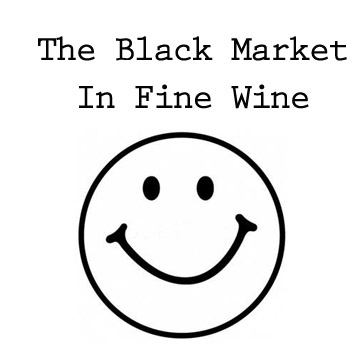The Multi-Million Dollar Black Market in Fine Wine
 Since 2005 when the Supreme Court issued its Granholm v. Heald ruling on wine shipments and the Commerce Clause, a significant black market in wine has arisen. This black market in wine allows consumers in 35 states to easily and illegally purchase wine from out of state sources that according to these states’ laws is illegal.
Since 2005 when the Supreme Court issued its Granholm v. Heald ruling on wine shipments and the Commerce Clause, a significant black market in wine has arisen. This black market in wine allows consumers in 35 states to easily and illegally purchase wine from out of state sources that according to these states’ laws is illegal.
Law breaking is a risky business. The potential law-breakers must weigh the consequences of getting caught versus the benefits of successfully avoiding detection of their crime. We do this when we choose to travel above the speed limit. We make the calculation when we choose to double park while running into school to retrieve our child. We carried out this calculation when our college selves chose to smoke a joint in a dorm room on Saturday night. Today, many wine lovers make this calculation when they order a bottle of French wine from an out-of-state wine store and arrange to have it shipped to their home or business in a state that makes shipments from out-of-state wine retailers a crime.
This last crime—the shipment of wine from an out of state wine retailer—is the source of hundreds of millions, if not a billions, of dollars in wine sales. It must be one of the largest black markets in America and its success is a direct result of two things:
1. The inability and disinclination of state law enforcement agencies to enforce their state’s ban on the direct shipment of wine from out of state retailers.
2. The complete and total lack of respect for these laws by both the consumers who live under them and the wine stores that ignore the laws.
It’s unlikely that the members of the United States Supreme Court anticipated the development of this black market when, in their Granholm v Heald ruling, they wrote:
“States may not enact laws that burden out-of-state producers or shippers simply to give a competitive advantage to in-state businesses.”
This is an astoundingly clear description of the limitations states must live under when they regulate direct-to-consumer shipments of wine. Yet, numerous states violate this Supreme Court directive. They violate this constitutional principle by allowing in-state wine stores to ship wine to their residents, but forbidding it by out-of-state wine retailers. They do it when they allow out-of-state wineries to act as retailers that may ship wine, yet prohibit traditional out-of-state retailers to ship wine to their residents. And they violate this principle when the state bans the shipment to their residents of all imported wines from out-of-state, but allows domestic wines to be shipped from out-of-state.
The response to these violations of Supreme Court directive has been the development of a Black Market that occurs in the open and about which few state do anything at all.
Upon hearing about these kinds of unconstitutional state laws, most people shake their heads and immediately recognize the their absurdity and their corrupt origins. None of the laws that ban consumers from receiving wine from out of state retailers provide the state with any benefits nor do they protect consumers. That they exist at all is testament to the willingness of lawmakers to favor the highest bidder: The in-state wine wholesaler and parochial in-state wine stores. Blame can also fall on wine consumers who don’t monitor legislation closely enough and on wineries that too quickly and too willingly sell out their best customers—retailers—when legislation is passed keeping retailers out of the direct wine shipping channel.
So, a black market prevails. And this is good for consumers. Not only do consumers usually find the wines they want in spite of the laws, but also they are able to buy them without paying a cent of taxes to anyone. This is one of the reasons, for example, why consumers in New York and Florida and Illinois, where out-of-state wine store shipments is illegal, willingly order the California Cabernet they want, but can’t find locally, from an out-of-state wine retailer rather than the winery. The winery must collect taxes, but the out-of-state wine store need not because New York, Florida and Illinois have chosen not to allow and regulate shipments from out of state wine stores, and therefore cannot collect any taxes.
The irony is that wine retailers would happily remit taxes to the state were they asked to do so. In fact wine retailers happily submit to regulation in 15 states they may legally ship into.
This all leads to very interesting situation. The in-state wholesalers and in-state retailers who have desperately and successfully opposed shipments from out-of-state wine retailers now face the reality of shipments from out of state retailers that don’t even have to pay any taxes, are in no way regulated and don’t find themselves under the jurisdiction of the states they ship into. In other words, it’s the worst possible outcome for the wholesalers and in-state retailers.
The Bottom Line: The Black Market in wine is good for consumers.

Leave a Reply